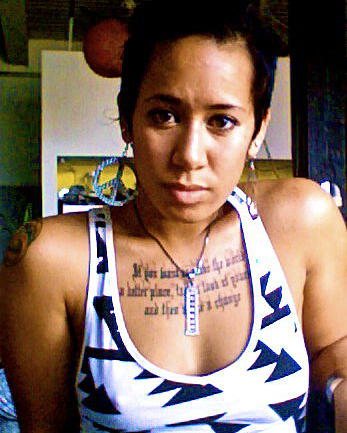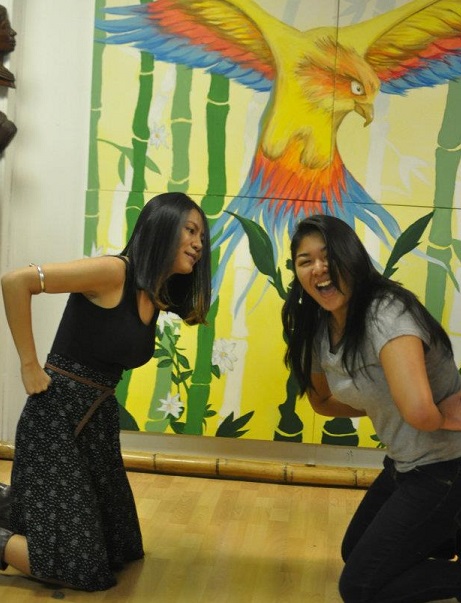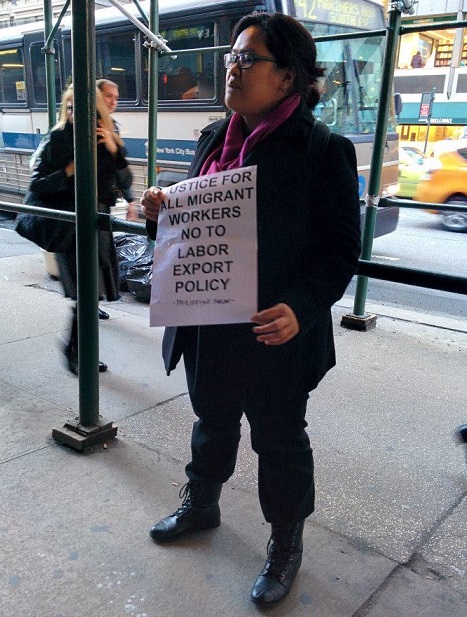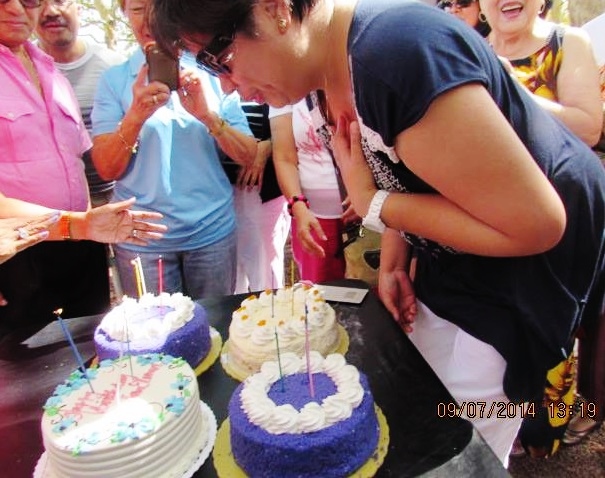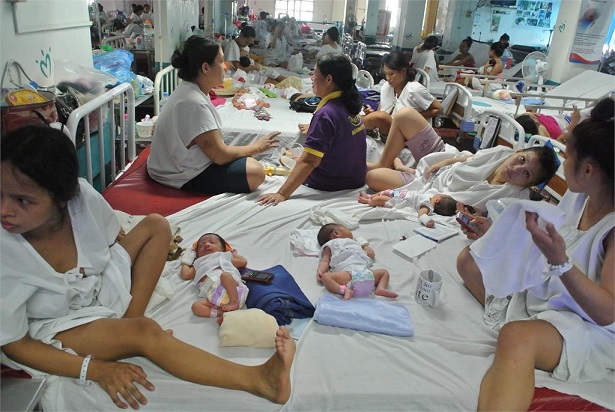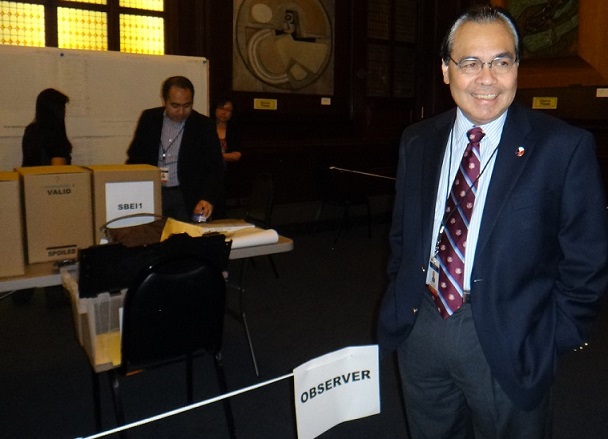New York counts the votes; final tally in 13 hours
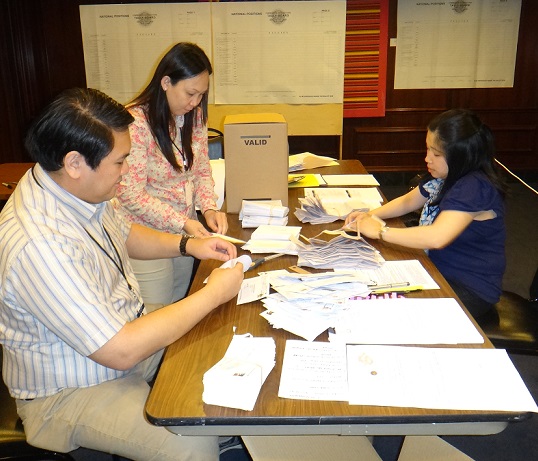
SBEI 3, led by Deputy Consul General Theresa Dizon de Vega (at right), prepares ballots for counting. The FilAm photos
By Cristina DC Pastor
Not a lot of people in this voting location as election inspectors opened ballot boxes and inspected ballots for possible tampering. Just a couple of curious women dressed in office suits and three journalists. No campaign fliers littered the floors, and no argumentative poll watchers were present. Definitely no partisan jousting. The place was as quiet as an Egyptian sepulcher.
This ‘voting precinct,’ located thousands of miles away from the hotbed of gladiator-like electoral conflict, is the Philippine Consulate on Fifth Avenue. Here, the action was more subdued, orderly and somewhat sleepy.
“A total of 2,377 ballots were cast,” said Consul General Mario Lopez de Leon Jr. as the consulate opened the counting process at exactly 7 a.m. on May 13.
Officers and staff of the consulate as well as the Philippine Mission to the United Nations assumed their duties as election inspectors to oversee the Philippine Midterm Elections for members of Congress and party list representatives. Six Special Board of Election Inspectors (SBEI) were created, each headed by a chairperson.
Because of the small voting turnout, the ballots were manually counted.
“Our counting here is pre-PCOS,” said ConGen de Leon in jest.
Ballots of at least 10,000 would justify the installation of a Precinct Count Optical Scanner machine, which the Philippine embassies in Hong Kong and Middle East may have, he explained.De Leon said the 12 percent decline in turnout – 2,377 in 2013 versus 2,700 in 2010 — may have to do with this voting being only a midterm and not a presidential election.
“With presidential elections, the stakes are higher,” he said. In 2010 in London, where he served as consul general of the Philippine Embassy, he recalled there would be poll watchers for the presidential candidates and the mood was more spirited.
Another reason for the slow turnout, de Leon surmised, is the nature of immigration in the United States vis-à-vis in other countries. In Hong Kong and the Middle East, the Filipinos are mostly contractual workers or OFWs, he said, whereas in the U.S. the Filipinos are mostly residents if not citizens. With OFWs, the connection to the Motherland remains strong.
“That looks to be the case,” he said.
The FilAm observed how each of SBEIs prepared the ballots to be counted. Each SBEI is a team of three people: one to open an envelope containing the ballot, another to make sure the ballot number matches that in the voters list, and the third to write the votes on the board. The process is pretty much clockwork.
De Leon said the counting could take as much as 13 hours. When all the votes are tallied up, the chairman of SBEI 1 – in this case Consul Bong Carino — will personally travel to the Philippine Embassy in Washington D.C. to deliver the tally sheet. The same procedure is to be carried out by Philippine consulates in Los Angeles, San Francisco, Houston, Chicago and Hawaii. The embassy acts as Special Board of Canvassers; it will also make the announcement as to who the Filipino Americans voted as their senators and party list representatives.
The consulate identified a total of 11 questionable ballots, with issues ranging possibly from inconsistent signatures to improperly sealed envelopes. The SBEI examined the ballots and determined which were valid for counting.
“Preliminaries can be time-consuming,” said Deputy Consul General Theresa Dizon-de Vega, who was chairperson for SBEI 3. Her board systematically opened each ballot by hand; SBEI 2 opened their ballots using scissors. Each SBEI performs independently of each other.
Overall, de Leon said he was pleased with the turnout in his consular jurisdiction covering the states of Connecticut, Delaware, Maine, Massachusetts, New Hampshire, New Jersey, New York, Pennsylvania, Rhode Island, and Vermont.
“As far as New York is concerned, I’m happy with the turnout,” he said.
 Trust our award-winning law firm with your immigration case.
Trust our award-winning law firm with your immigration case.


